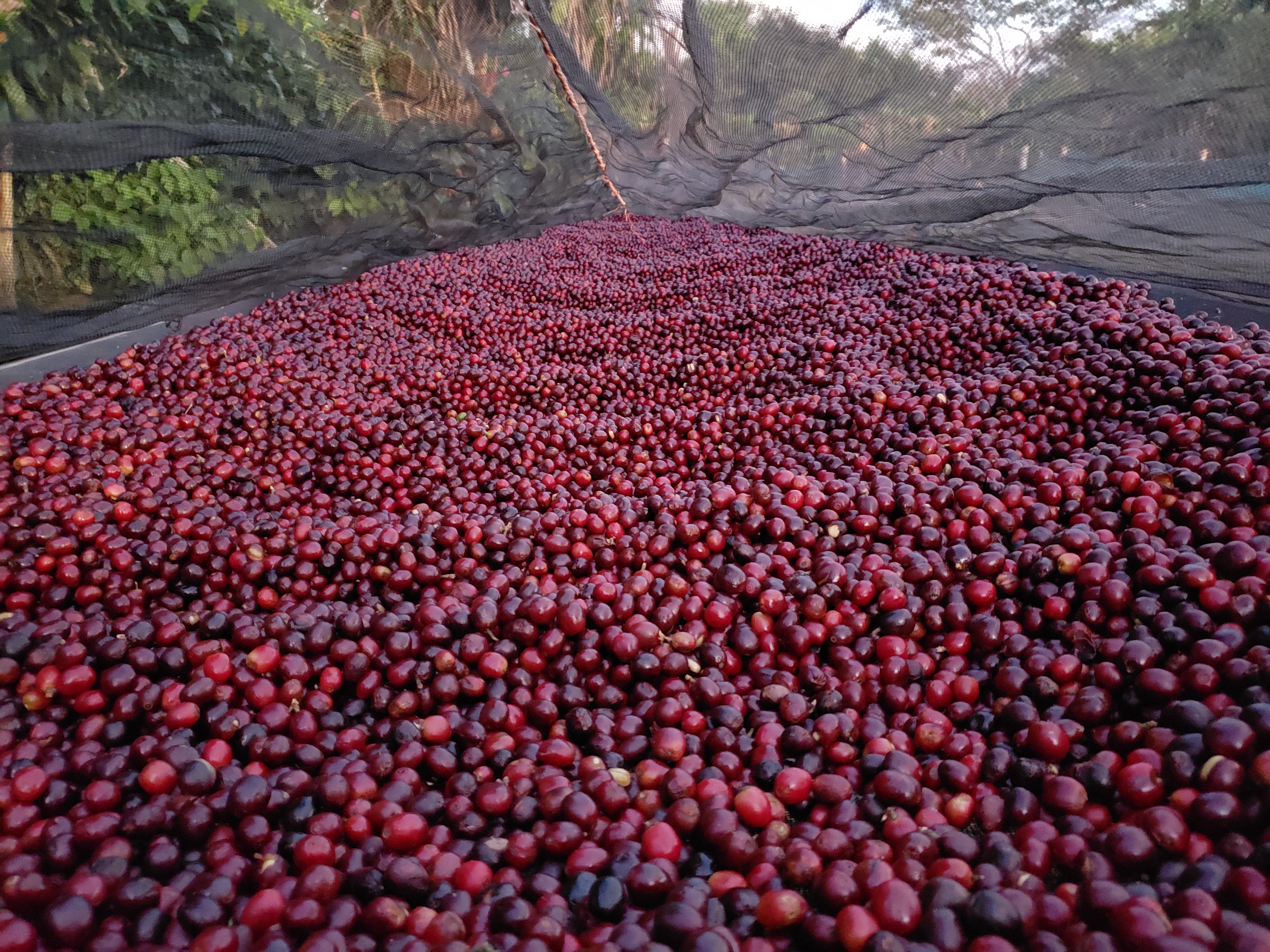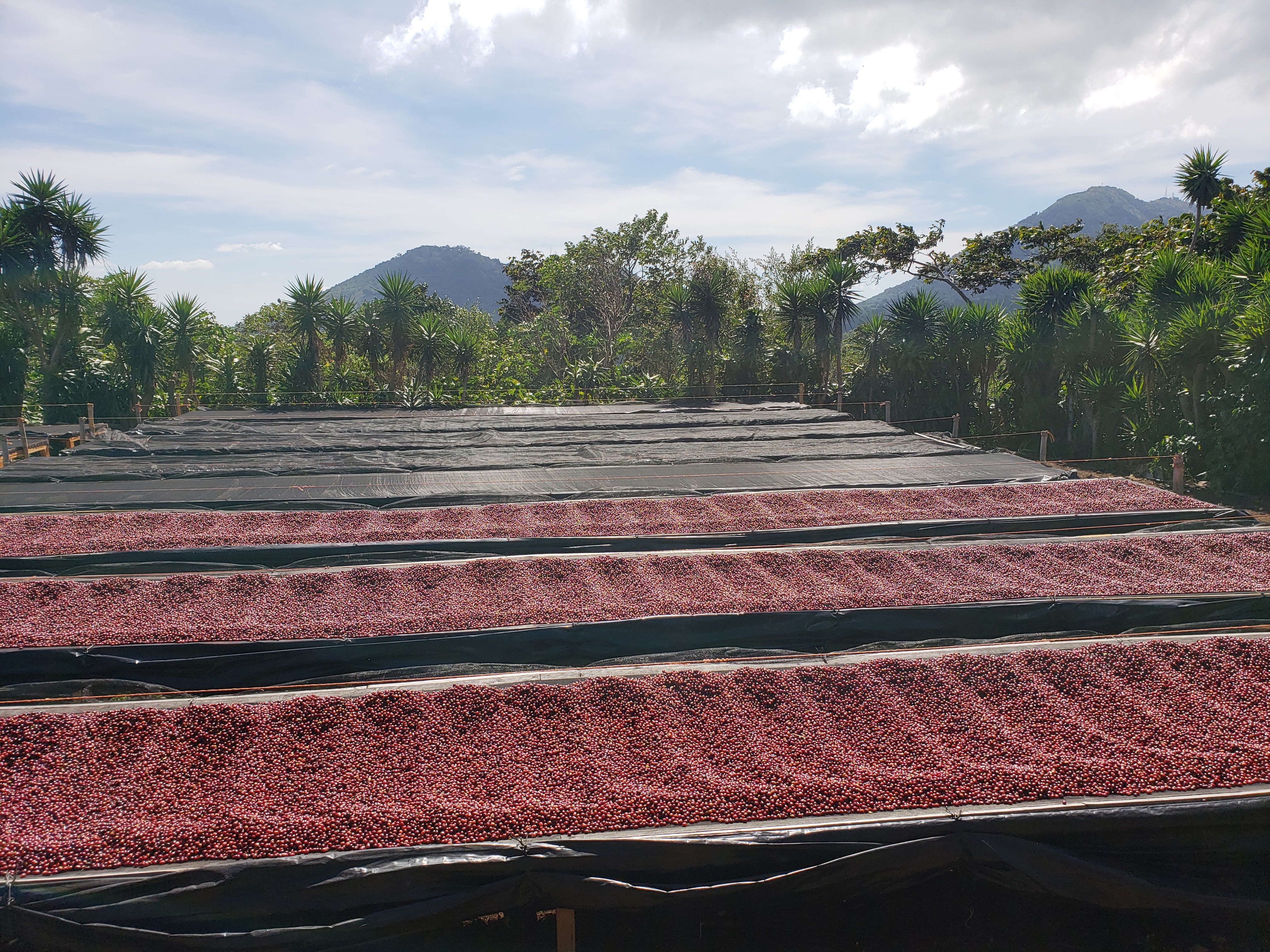
السلفادور - فينكا لاس بريساس
كرّس المنتج كارلوس بولا حياته لإحداث ثورة في إنتاج القهوة المتخصصة.

المزرعة: فينكا لاس بريساس
الصنف: مزرعة هجينة
المعالجة: العسل
الارتفاع: 1200 إلى 2030 متر فوق مستوى سطح البحر
منتج: كارلوس بولا
المنطقة: جوايوا، أبانيكا
ملاحظات التذوق: قشرة الشوكولاتة، السكر البني، البندق المحمص
استغل كارلوس خبرته في صناعة المنسوجات لتطوير تطبيق تتبع، وإنشاء إجراءات جديدة لمراقبة الجودة في مختبره، وتحديد أفضل الأساليب البيئية لتعزيز نمو النباتات. ويواصل كارلوس العمل مع أكبر عدد ممكن من المزارعين لمساعدتهم على تبني ممارساته في مزارعهم.
ينحدر كارلوس بولا من عائلة من مزارعي البن. وقد اشترى مزرعة Finca Las Brisas في عام 1997 أثناء عمله في صناعة النسيج. وبحلول عام 2012، تحول إلى العمل في مجال القهوة بدوام كامل. وتتمثل رؤيته في إنتاج قهوة متخصصة مستدامة من خلال تطبيق خبرته في صناعة النسيج في مراقبة الجودة والكفاءة وإدارة البيانات على إنتاج القهوة في مزرعة Finca Las Brisas.
تحتوي المزرعة على مختبر خاص بها لتجربة طرق المعالجة الجديدة ومراقبة الجودة وتثقيف عمال المزرعة حول القهوة المتخصصة. يؤمن كارلوس بدعم مجتمعه ومساعدة أكبر عدد ممكن من المزارعين على تبني القهوة المتخصصة. لقد وجه شغفه بالتتبع إلى تطبيق يتتبع القهوة من يوم حصادها إلى مستودع الشحن.
زراعة
عندما كرس كارلوس نفسه لإنتاج القهوة بدوام كامل في عام 2012، قام بتجديد المزرعة لإنشاء مزرعة تركز على إنتاج جديد تمامًا ومستدام وفعّال من حيث التكلفة. لقد نجح كارلوس في الحد بشكل كبير من استخدام المزرعة للمبيدات الحشرية والأسمدة الكيميائية من خلال تبني مزيج محدد من النظرية العلمية وخبرة منتجي القهوة.
تُزرع الأشجار في صفوف مزدوجة وتُظللها أشجار مثبتة للنيتروجين. حتى أن كارلوس قام بنشر فطريات محددة لها علاقات تكافلية مع أشجار البن ويمكنها في الواقع مساعدة الأشجار على أن تكون أكثر كفاءة في امتصاص النيتروجين والفوسفور.

الحصاد وما بعد الحصاد
يتم قطف الكرز يدويًا بشكل انتقائي ووضعه على أحواض مرتفعة ليجف في الظل لمدة 3 أيام. بعد ذلك، يتم تقشير الكرز وتجفيف الرق والصمغ المتبقي على أحواض مرتفعة. يتم تمشيط الرق بشكل متكرر لضمان التجفيف المتساوي. يستغرق تجفيف الرق ما يقرب من 15 إلى 20 يومًا.
يتم تخزين الرق المجفف في المزرعة لعدة أيام ثم يتم نقله إلى تعاونية لا كوزكاتشابا في تشالشوابا، سانتا آنا ليكون جاهزًا للتصدير.
تمشيا مع تركيزه على الأساليب السليمة بيئيا، يستخدم كارلوس العسل فقط وعمليات التخمير الطبيعية والخاضعة للرقابة للمساعدة في تقليل استهلاك المياه في Finca La Brisas. يتم معالجة أي مياه تستخدم في المعالجة بعناية لتقليل تأثيرها البيئي. يتم تخمير المياه لاهوائيا في خزانات محكمة الغلق حيث يتم تكسير المواد الصلبة. يتم استخدام هذا المحلول الغني بالمغذيات لنشر الفطريات التي تدعم امتصاص المغذيات التكافلية في أشجار البن.


السلفادور
لا تنخدع بحجم السلفادور الصغير. فقد كانت في يوم من الأيام رابع أكبر منتج للقهوة في العالم وما زالت تنتج كميات عالية الجودة. تشتهر البلاد بأصنافها الرائعة، مثل بوربون وباكامارا. في الواقع، نشأ نوعان محبوبان وعاليا الجودة في كثير من الأحيان - باكاس وباكامارا - في السلفادور.
على عكس البلدان الأخرى، حيث يتطلب إنتاج القهوة المتخصصة قدرًا كبيرًا من الاستثمار والتدريب الإضافي، تمتلك السلفادور بالفعل قوة عاملة واسعة وذات مهارة في مجال القهوة المتخصصة. تقاليد الزراعة راسخة، والعديد من المزارعين السلفادوريين متحمسون للغاية لإنتاج القهوة ويسعون باستمرار لتحسين محاصيلهم. تتمتع السلفادور بظروف مثالية لمعالجة القهوة. يحدث موسم الجفاف المطول عادةً خلال موسم الحصاد، مما يجعل تجفيف القهوة في الشمس أسهل.
ورغم أن إنتاج البن في البلاد كان في انحدار لأكثر من عقدين من الزمان ــ وهو ما تفاقم بسبب أزمة CLR ــ فإن النهج المتبع في إنتاج البن تغير من التركيز على الحجم إلى التركيز على الجودة. وقد نشأ جيل جديد من منتجي البن في مختلف أنحاء البلاد برؤية جديدة ونهج جديد للإنتاج. ويجري العديد من أفراد هذا الجيل تجارب على المعالجة وأصناف البن.












